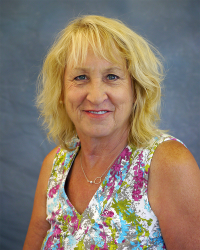
Ruth Posthumus
Written by Ruth Posthumus.
Based on observations made in the field.
October 26, 2015: THE SOWHOPE TEAM ARRIVES IN THE EASTERN DEMOCRATIC REPUBLIC OF THE CONGO (DR CONGO).
During a drive to visit agropastoral projects in a rural village, Claudaline told the SowHope team about her inspiration for beginning the work she does with women. She said:
“At 15, I came from the village to be educated. The thought in my head was ‘how can I help my nation?’ I was always thinking about how women struggle. My mother worked so hard. Women work even harder in the village. Agriculture is hard work… My idea is to work in the village to sensitize men to work with women for the children. Men and women need to work together… The women arrange the house, send the children to school, then join the husband in the field. He leaves, then she finds firewood and cares for the goats and comes home and feeds everyone. Women have it very hard, and I know how women struggle from living in the village.”
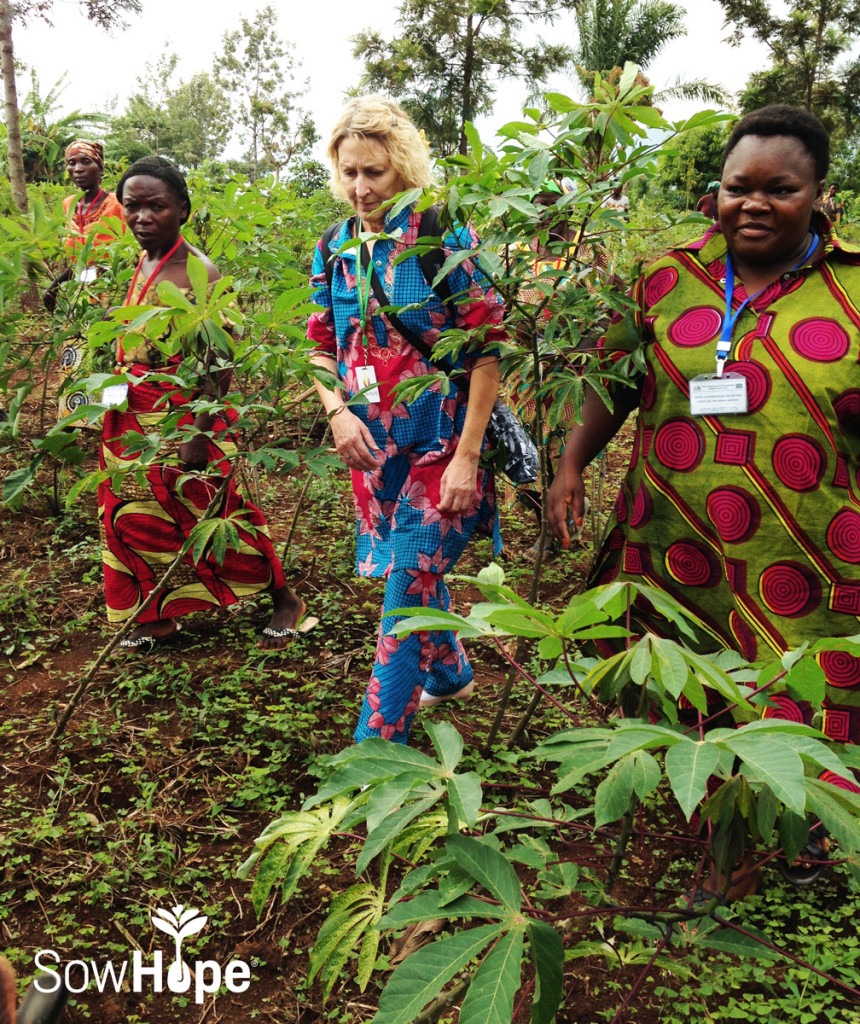
Claudaline (right), SowHope’s partner and local leader in the DR Congo, shows the SowHope team (Dr. Pam Ogor shown here, center) cassava plants grown by women in a SowHope-sponsored project. Photo by Ruth Posthumus, October 2015.
After a very long drive involving many stops by officials to verify everyone’s passports, we made it to the rural projects. The women had been waiting for us and came out singing and dancing to boast of their successes as a result of the agropastoral projects. The women have farmed crops including cassava plants and pineapples, and they have raised livestock such as goats and chickens. The women presented us with a chicken as a gift of thanks for all of SowHope’s support (click for video). These women were so inspiring with their joyful presentation of the fruits of their labor.
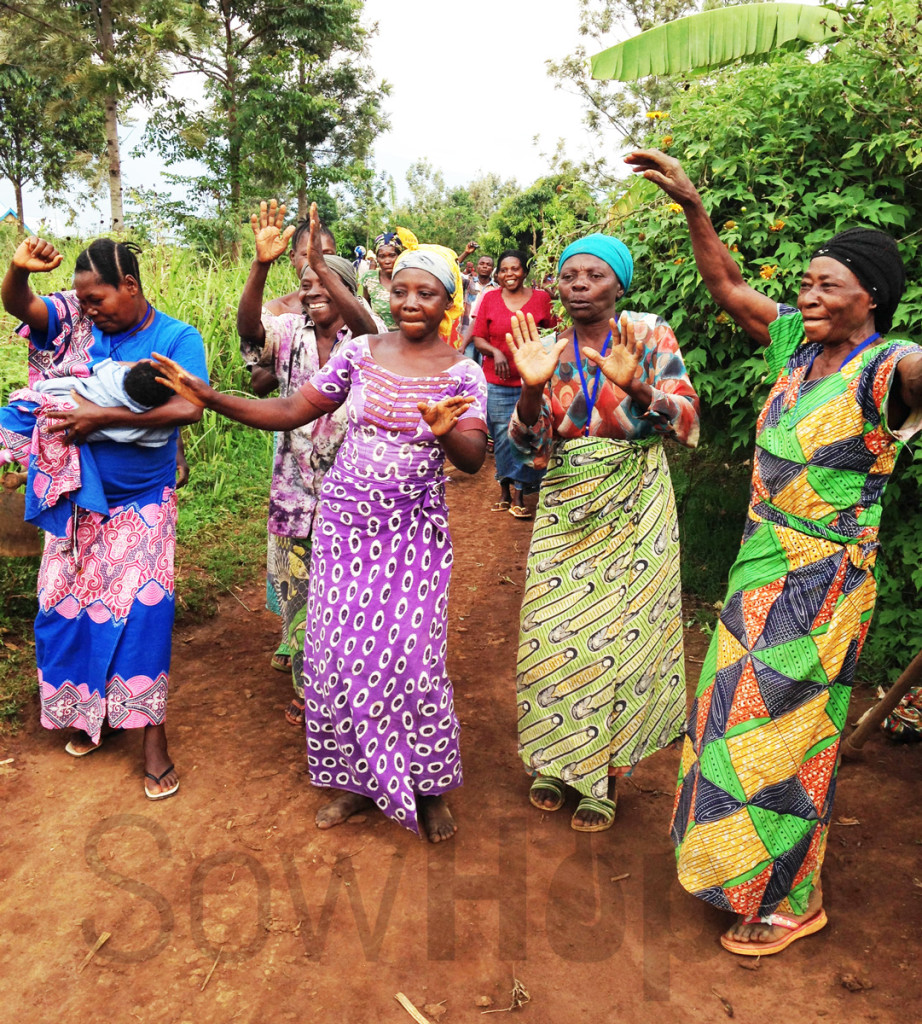
Women from an agropastoral economic project in rural DR Congo. Photo by Ruth Posthumus, October 27, 2015.
The following day at breakfast, before visiting beneficiaries, Claudaline and her husband told us that some progress is being made in the area around the issue of rape. Women are finally beginning to break the silence and speak out about the atrocities they have endured. Later we visited a clinic in this rural area and learned that the local mortality rate has decreased. Our next stop was to the local office of Claudaline’s organization, where we learned how they organize agricultural groups and decide which women will receive the next livestock that are born.
SOWHOPE PARTNERS WITH VISION GRAM INTERNATIONAL
The team’s next visit in the DR Congo was to another rural area that has been especially hard hit by violence over the last couple decades. Rebels from a neighboring country fled to this region years ago. After hiding out in the bush for some time, they eventually raided the villages for food and women. Although most people in the region were affected by these raids in some way, women and children suffered the most. In this culture, because of the stigma associated with rape, if wives do manage to escape and return home after being kidnapped, they are no longer welcomed by their husbands. Any child born out of rape is also stigmatized and unwelcome.
Marie Claire, one of the women served by SowHope, was kidnapped by rebels four times, and at one point separated from her 7-month-old baby. A total of 27 women were taken from her village, and 17 women eventually returned. Marie Claire told the SowHope team, “I am surviving because of GRAM (SowHope’s partner in this area). I get ideas and advice. I live because of this man, Theo (GRAM’s Program Officer). The bush was very painful. 27 women went into the forest. 10 did not come back. GRAM helped with mental issues.”
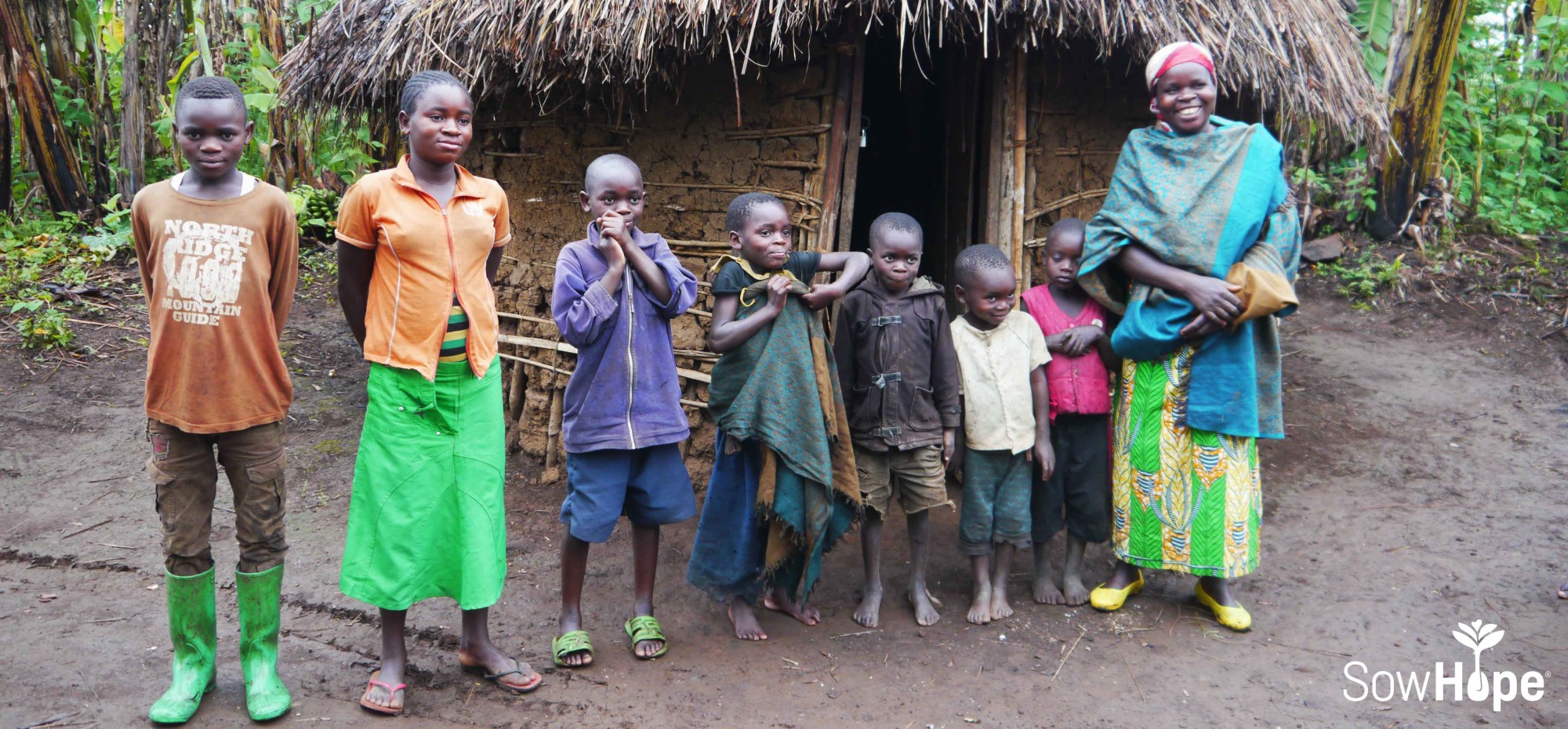
Marie Claire, a mother with her children in the DR Congo. This mother is a member of an economic project specifically geared toward helping survivors of armed violence in the region. Photo by Mary Dailey Brown, October 2015.
The team also visited the homes of Marguerite and Vumi. The military took Marguerite from where she was cultivating crops. Three of the women in her group were killed and the rest were taken far into the bush. They forcibly became wives and slept behind rocks, never sleeping in the same place twice in six months. Some of the women, including Marguerite, escaped during a conflict between the militia and the rebels. GRAM (SowHope’s partner) took Marguerite in and brought her to the hospital. GRAM provided counseling and then literacy training. Her parents were both killed and her husband left. Marguerite stated, “I would be dead without GRAM because of no resources and no family.” She said she feels strong now and she is very thankful for SowHope funding projects carried out by GRAM.
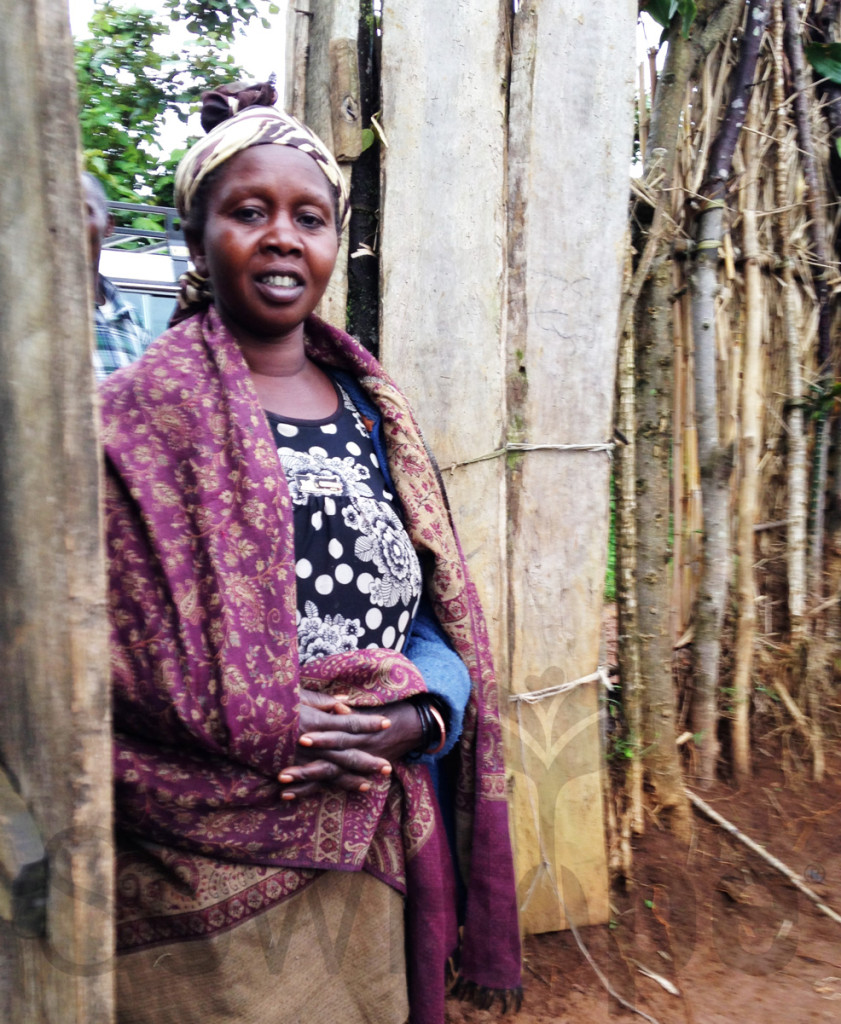
Marguerite, a beneficiary of SowHope economic projects through GRAM. Photo by Ruth Posthumus, October 2015.
Vumi was also taken by rebels as she was harvesting cassava, and she came back from the bush pregnant. GRAM provided counseling and an opportunity for joint agricultural projects. Some of her children have gone to school and some are helping with her agricultural business of selling peanuts. They take 50 pound packs a distance of 32 kilometers to sell. It is a 4 day process for $10 of profit. She is very thankful for GRAM and SowHope.
Chiba (below) is holding her baby named Believe. She spoke of the challenges of returning from the bush. GRAM and SowHope provided her with the opportunity to get an education. She used the resources from her agricultural project to get an education. Chiba said, “It would be really difficult to live here without GRAM.”
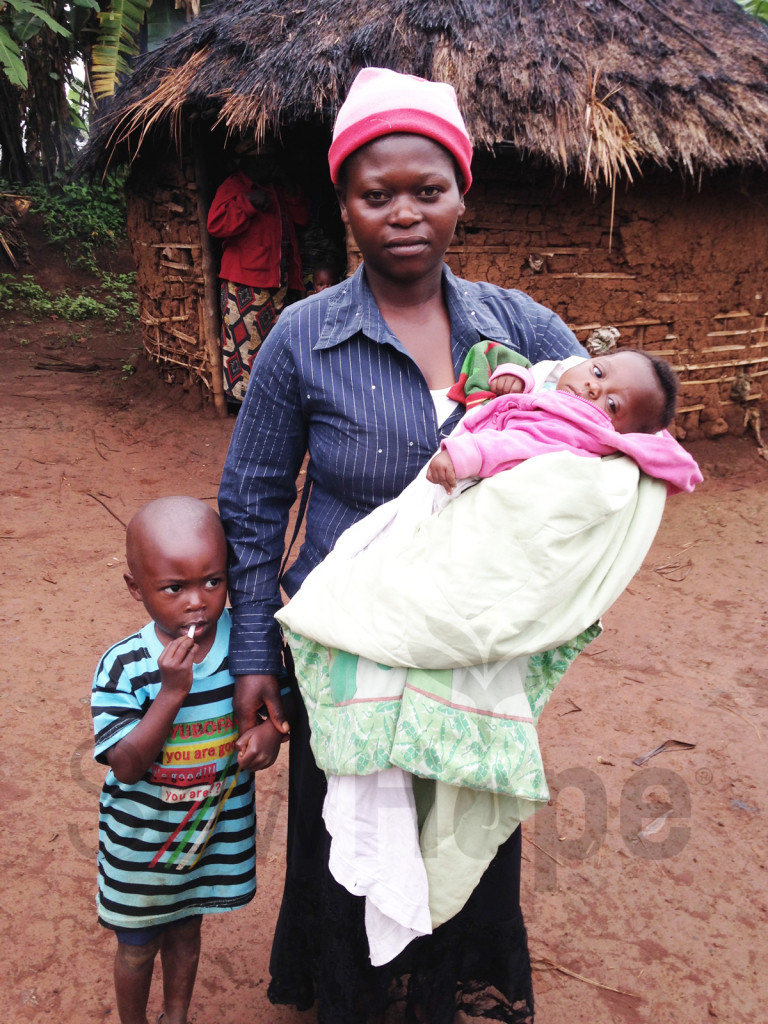
Chiba used her resources from the SowHope economic project to fund her education. Photo by Ruth Posthumus, November 2015.
The most difficult evidence of trauma that the team saw and heard about in the DR Congo was from a woman who said she did not want to talk but she would show us what the rebels did to her. The rebels broke into her house in the night and immediately killed her husband. They wanted money and there was none in the house. The previous rebel group had taken all the money. The rebels literally carved her up with machetes and killed her baby. After learning about what these women endured, my tears did not stop that night. GRAM (SowHope’s partner) has taken the role of family in the lives of these women.
October 31, 2015: The team visited our partner Claudaline’s tailoring shop. Claudaline spoke about her supportive father who taught her tailoring. One year he did not have enough money to send her to school so he set her up to learn tailoring. Now she has a very successful shop that employs both men and women.
We traveled on to another rural area. In one village there is a SowHope-funded birthing clinic. Joyce is the nurse, and Josephine is the leader of the women’s group who are served by the clinic. There are over 300 women in the group and many come from far away to give birth. Triplets were born shortly before we arrived. There will now be a new birthing clinic. All were very excited about the grant for the new clinic, and we were excited to see the beginning of the project. On the ground, the walls of the clinic were outlined in the dirt, and the shape of the new building could be seen. The chief said, “I am very, very happy for your visit.” He requested an ambulance (motorcycle) and said to give greetings to America.
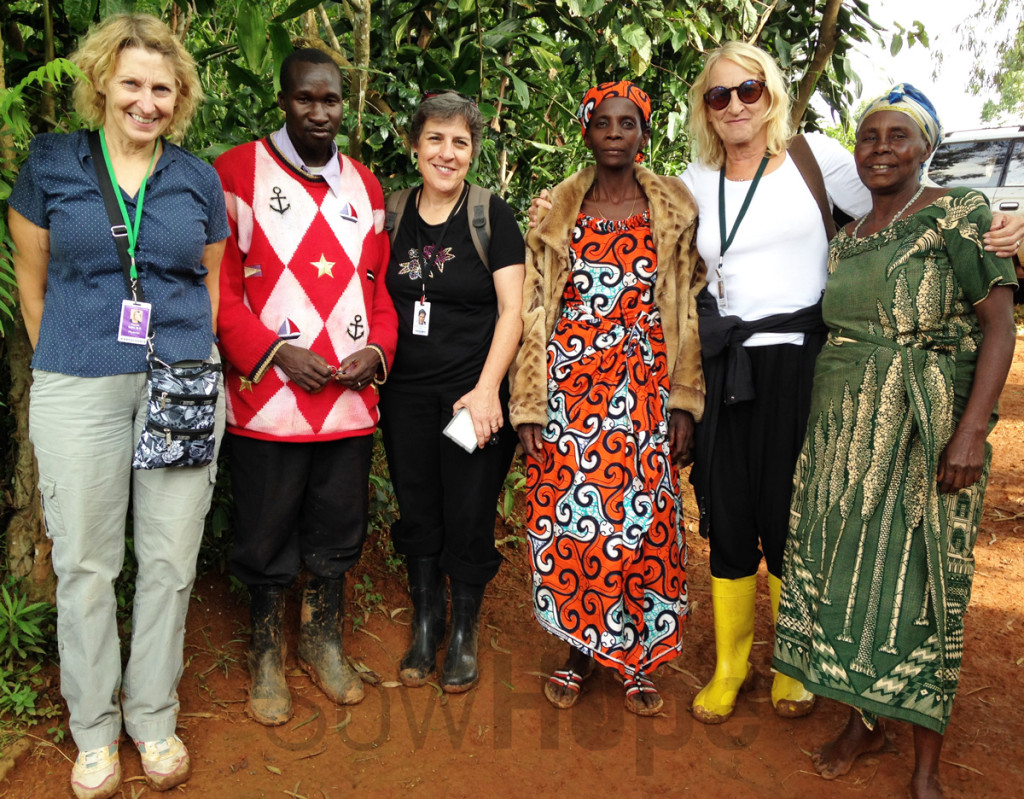
Local leaders Josephine and Joyce with the chief of the region and the SowHope team. Photo by Flory Buki, October 31, 2015.
At another village, the women were thankful for goats and hoes for improved farming. “The goats ($60 each) are up on the mountains. 60 women cultivate 200 square meters. 900 women got one hoe each.” Another woman commented that “the impact is lasting.” The women spoke about how their lives have been transformed since SowHope came. They are living better than 6 years ago. The biggest challenge they continue to face is having enough money to educate their children.
The team moved on to the next village where Novi, our partner, used the grant money to construct a new facility for education. 43 women were involved in literacy training. It is a two-year program and the women pay for the schooling by growing and selling onions.
As we arrived at the next village, one of our partners, Beatrice, arrived on a motorcycle from her village. The roads were too bad for any other type of vehicle. It was impossible for us to get to her village because of recent rain. Beatrice’s project is to raise goats and sheep. There are over 400 women in the area surrounding her village that are involved in the project. They have formed an association and they are doing collective farming. They have received hoes and machetes for farming and are growing cabbage and potatoes to sell.
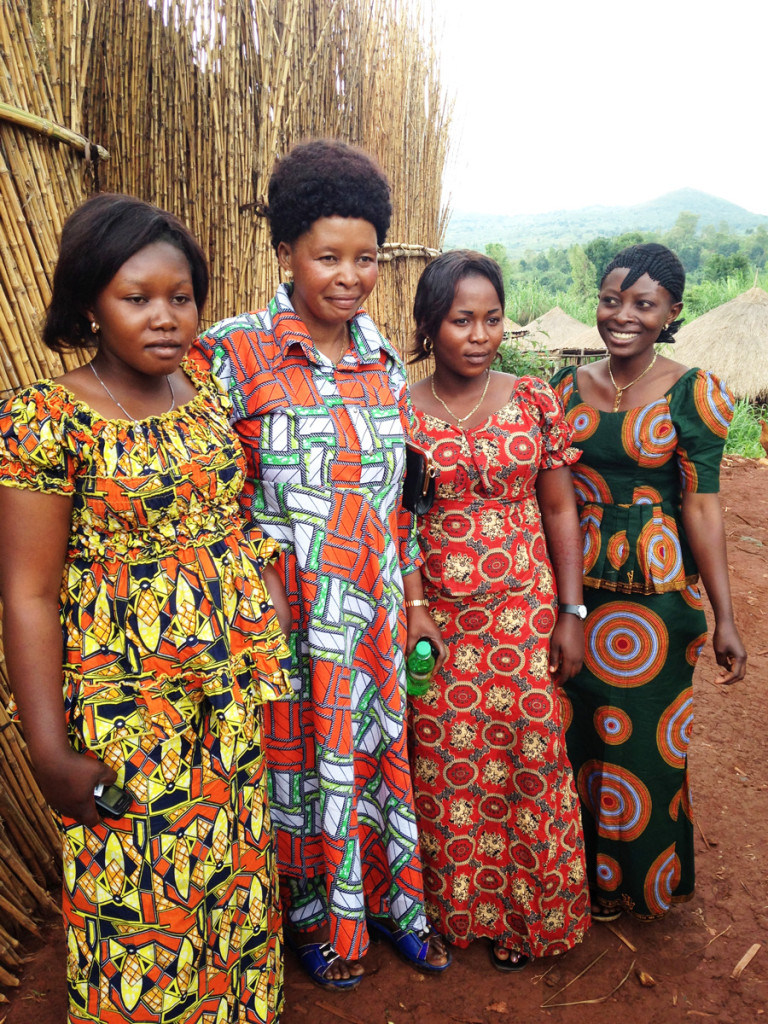
Ngadjoy, second from left, is one of SowHope’s local leaders in rural DR Congo. Here she stands with her daughter and two women from a tailoring education project. Photo by Ruth Posthumus, November 3, 2015.
Our team then met with local leader Ngadjoy and the women of her village. Their next project will be a birthing center. A large group of men and women joined the meeting. They spoke about how SowHope has improved their village. Mary encouraged all! The men plan to do the building of the birthing clinic. Ngadjoy is the leader of many of the villages in the rural area. Her work is impressive!
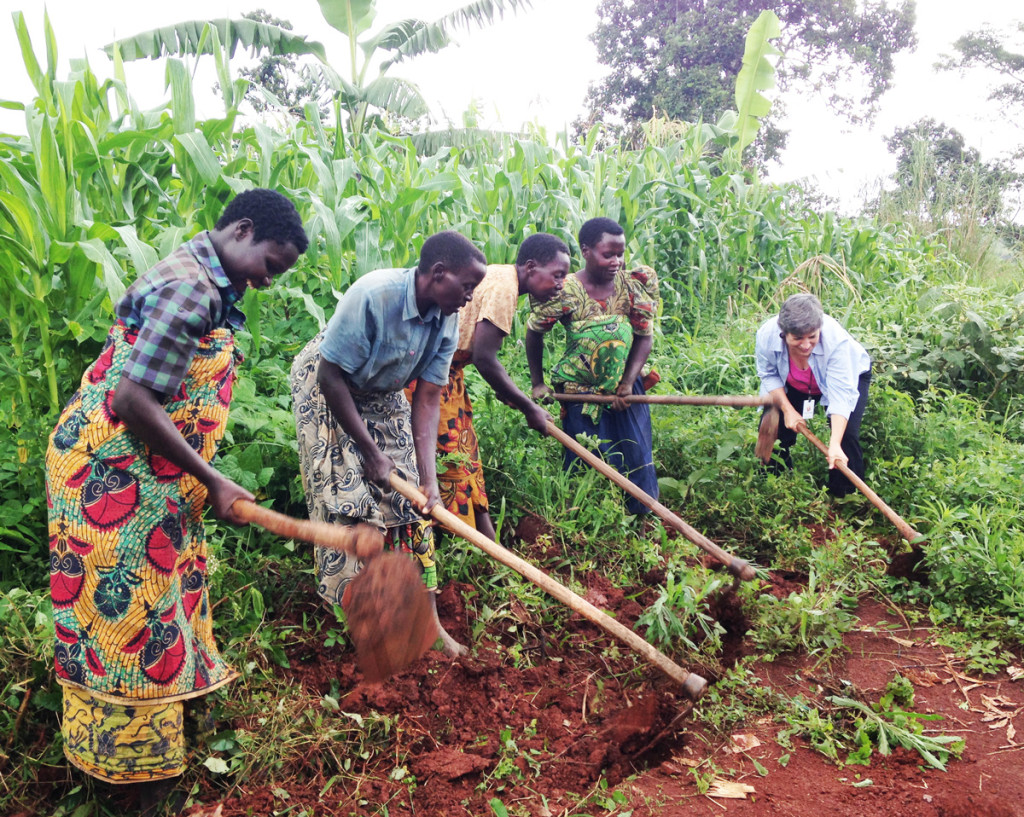
Women from an agricultural project in the DRC show SowHope president Mary Dailey Brown how they farm their crops. Photo by Ruth Posthumus, November 2015.
To close out the trip, the team headed back to a city that has a United Nations office and thanked them for allowing us to use UN flights to travel around the DR Congo. The roads during rainy season were almost impossible to navigate, but the mission was accomplished–we were able to meet with all eight of the local leaders and verify the progress of their SowHope-funded projects. As I have said so many times since returning from this trip, our partners in the DR Congo are some of the most amazing people on the planet!!
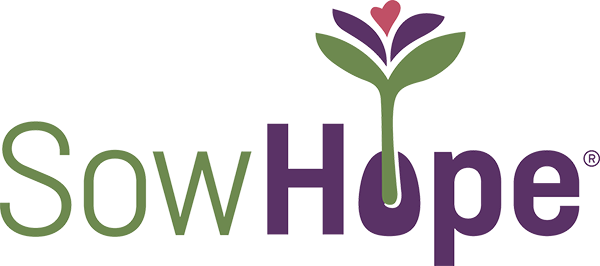
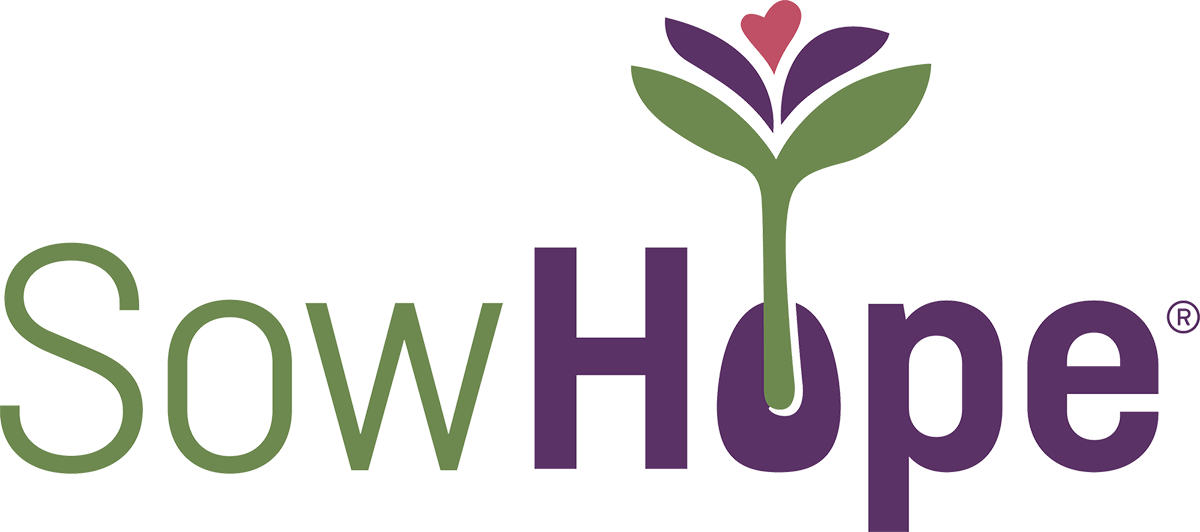




Recent Comments